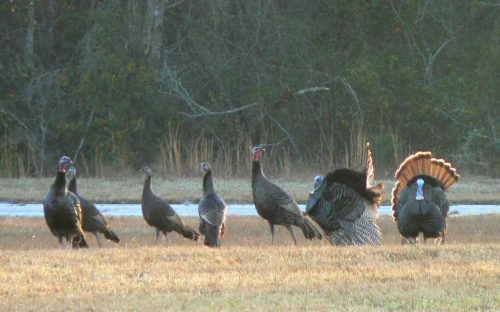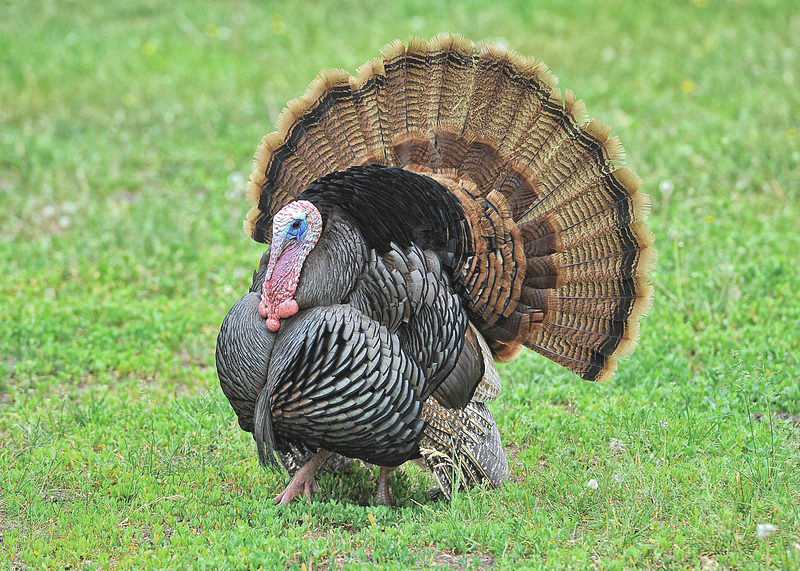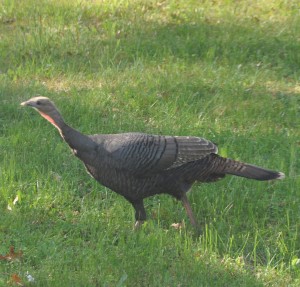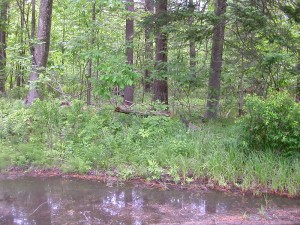
Yes, the Bald Eagle is the US national bird, but I’ll bet you secretly like the Wild Turkey best.
Though once endangered, the Wild Turkey has made a comeback and is found in most US states (and in northern Mexico). In New England, she has become a bit of a nuisance, flocking onto roadways and chasing suburban children.
Turkeys are social animals, the females at least, and sisters sometimes raise their next brood together. They can be aggressive, which makes sense, since their chicks are grounded. Adult turkeys can fly and swim, though they usually choose to run and walk.
They are quite fast runners. Once a turkey challenged me to a race. I was riding my bicycle on a paved country road, and a turkey began trotting next to me. Just for fun, I sped up, and the turkey continued running alongside of me. Finally I broke loose and pedaled as fast as I could, and the turkey and I were in tied in a fiercely competitive race. Eventually we left farmland and passed into a copse of trees, and the turkey had to fly up into the branches.
The word for turkey in Munsee Delaware is puleew, and the turkey is the totem animal for one of the major clans. Delaware women would wear cloaks of turkey feathers during important ceremonies.
The turkey has been the downfall of many a vegetarian. Many have told me that they stayed away from animal flesh completely for a year or more until one day, when they were really hungry, there was turkey….



